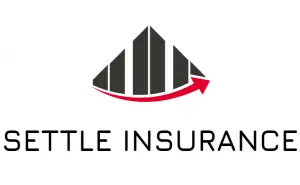“This post may contain affiliate links, if you click a link we may earn a commission if you purchase from that merchant.”
Dental care is an essential aspect of overall health and well-being. Good oral hygiene not only helps maintain healthy teeth and gums but also plays a significant role in preventing various health conditions such as heart disease, diabetes, and respiratory infections. Despite its importance, dental care is often overlooked, and many people do not prioritize regular dental check-ups and treatments.
One of the main reasons for neglecting dental care is the financial burden associated with it. Dental procedures can be expensive, especially for those without insurance coverage. According to a study conducted by the American Dental Association, cost is the primary reason why people avoid visiting the dentist regularly. This highlights the need for affordable dental options that can provide access to quality dental care without breaking the bank.
Table of Contents
Understanding Dental Insurance and Its Limitations
Dental insurance is a type of coverage that helps individuals pay for their dental expenses. It differs from medical insurance in several ways. While medical insurance typically covers a wide range of services, including preventive care, hospital stays, and prescription medications, dental insurance focuses primarily on oral health-related treatments.
However, dental insurance also has its limitations. One common limitation is waiting periods. Many dental insurance plans have waiting periods before certain procedures are covered. This means that individuals may have to wait for a specific period, usually six months to a year, before they can receive coverage for major treatments such as root canals or crowns.
Another limitation of dental insurance is annual maximums. Most plans have a maximum amount they will pay for dental services in a calendar year. Once this limit is reached, individuals are responsible for paying any additional costs out of pocket.
Exclusions are another common limitation of dental insurance. Certain procedures or treatments may not be covered by insurance plans, such as cosmetic dentistry or orthodontics. It’s important to carefully review the terms and conditions of a dental insurance plan to understand what is covered and what is not.
Factors to Consider When Choosing Dental Insurance
When choosing dental insurance, there are several factors to consider to ensure that the plan meets individual needs and budget. One important factor is coverage levels. Different plans offer varying levels of coverage for preventive care, basic procedures, and major treatments. It’s essential to assess individual dental needs and choose a plan that provides adequate coverage for those specific needs.
Deductibles are another factor to consider. A deductible is the amount an individual must pay out of pocket before the insurance coverage kicks in. Higher deductibles usually result in lower monthly premiums, but individuals should consider their ability to pay the deductible before choosing a plan.
Network providers are also an important consideration. Dental insurance plans often have a network of dentists and specialists that individuals must choose from to receive maximum coverage. It’s crucial to ensure that there are network providers in the local area and that they meet individual preferences and requirements.
Comparing different dental insurance plans is essential to find the best fit. Individuals should research and compare the costs, coverage levels, deductibles, and network providers of different plans before making a decision. Online resources and insurance brokers can provide valuable information and assistance in this process.
Alternative Options to Dental Insurance
For those who cannot afford or do not have access to traditional dental insurance, there are alternative options available that can provide affordable dental care. These options include dental discount plans, Medicaid and CHIP, dental schools, community health centers, and charitable organizations.
Dental discount plans are membership-based programs that offer discounted rates on dental services. Unlike insurance, there are no waiting periods or annual maximums with dental discount plans. Individuals pay an annual or monthly fee to access discounted rates at participating dentists.
Medicaid and the Children’s Health Insurance Program (CHIP) are government-sponsored programs that provide dental coverage for low-income individuals and families. Eligibility requirements vary by state, but these programs can be a valuable resource for those who qualify.
Dental schools offer affordable dental care provided by supervised dental students. These students are in the final stages of their training and provide treatment under the guidance of experienced faculty members. While the treatment may take longer due to the learning process, it can be a cost-effective option for those on a tight budget.
Community health centers are another option for affordable dental care. These centers provide comprehensive healthcare services, including dental care, to underserved populations. They often offer sliding fee scales based on income and provide care regardless of insurance status.
Charitable organizations also play a crucial role in providing free or low-cost dental services to those in need. These organizations rely on donations and volunteer dentists to offer dental care to individuals who cannot afford it. While availability may vary, these organizations can be a lifeline for those without insurance or financial means.
Dental Discount Plans: A Cost-Effective Option
Dental discount plans are an increasingly popular alternative to traditional dental insurance. These plans work by offering discounted rates on dental services at participating dentists. Individuals pay an annual or monthly fee to access these discounted rates.
One of the main advantages of dental discount plans is their lower cost compared to traditional insurance. Monthly premiums for dental insurance can be expensive, especially for individuals who do not have employer-sponsored coverage. Dental discount plans offer an affordable alternative, with annual fees typically ranging from $100 to $200.
Another advantage of dental discount plans is that there are no waiting periods or annual maximums. Individuals can start using their plan immediately after enrollment and receive discounts on all covered procedures. This is particularly beneficial for those who require immediate dental treatment or have ongoing dental needs.
Dental discount plans also offer flexibility in terms of providers. Unlike insurance plans that have a network of dentists, individuals with discount plans can choose any participating dentist in their area. This allows individuals to select a dentist that meets their preferences and requirements, such as location, office hours, and specialties.
Medicaid and CHIP: Government-Sponsored Dental Coverage
Medicaid and the Children’s Health Insurance Program (CHIP) are government-sponsored programs that provide dental coverage for low-income individuals and families. Eligibility requirements vary by state, but these programs can be a valuable resource for those who qualify.
Medicaid provides comprehensive healthcare coverage, including dental care, to low-income individuals and families. The program is jointly funded by the federal government and states, and eligibility is based on income and other factors. Medicaid dental benefits vary by state but typically cover preventive care, such as cleanings and exams, as well as basic procedures like fillings and extractions.
CHIP is a separate program that provides healthcare coverage to children in low-income families who do not qualify for Medicaid. Like Medicaid, CHIP dental benefits vary by state but generally cover preventive care and basic procedures. Some states also offer orthodontic coverage for children with severe dental problems.
One of the main benefits of Medicaid and CHIP dental coverage is that it provides access to affordable dental care for those who may not have any other options. These programs can help individuals maintain good oral health and prevent more serious dental problems in the future.
However, there are limitations to government-sponsored dental coverage. Not all dentists accept Medicaid or CHIP, so individuals may have limited choices when it comes to providers. Additionally, there may be waiting lists or limited availability for certain procedures or treatments.
Dental Schools: Affordable Treatment from Future Dentists
Dental schools offer affordable dental care provided by supervised dental students. These students are in the final stages of their training and provide treatment under the guidance of experienced faculty members. While the treatment may take longer due to the learning process, it can be a cost-effective option for those on a tight budget.
One of the main advantages of receiving treatment at a dental school is the lower cost. Dental schools typically offer discounted rates for their services, making them more affordable compared to private dental practices. This can be particularly beneficial for individuals without insurance or those who cannot afford the high costs of dental care.
Another advantage of dental schools is the comprehensive care they provide. Dental students are trained in all aspects of dentistry and can perform a wide range of procedures, from routine cleanings to complex treatments. Additionally, faculty members supervise the students closely, ensuring that the treatment is of high quality.
However, there are drawbacks to receiving treatment at a dental school. The treatment may take longer compared to private practices due to the learning process and the need for faculty supervision. Individuals should be prepared for multiple appointments and longer chair times.
Additionally, not all dental schools offer the same services or have availability for certain procedures. It’s important to contact the dental school beforehand to inquire about the services they provide and any limitations or restrictions.
Community Health Centers: Dental Care for Low-Income Individuals
Community health centers play a crucial role in providing affordable dental care to low-income individuals and families. These centers are nonprofit organizations that provide comprehensive healthcare services, including dental care, to underserved populations.
One of the main benefits of receiving dental care at a community health center is the affordability. These centers often offer sliding fee scales based on income, meaning that individuals pay what they can afford based on their income level. This makes dental care accessible to those who may not have any other options due to financial constraints.
Community health centers also provide comprehensive care, including preventive services, restorative treatments, and emergency care. They have a team of healthcare professionals who are experienced in treating patients with diverse needs and backgrounds. This ensures that individuals receive high-quality care regardless of their insurance status or ability to pay.
However, there may be limitations to receiving dental care at community health centers. These centers often have limited resources and may have long wait times for appointments. Additionally, the range of services offered may vary depending on the center and its funding. It’s important to contact the center beforehand to inquire about the services they provide and any eligibility requirements.
Charitable Organizations: Free or Low-Cost Dental Services
Charitable organizations play a crucial role in providing free or low-cost dental services to those in need. These organizations rely on donations and volunteer dentists to offer dental care to individuals who cannot afford it.
One of the main benefits of receiving dental care from charitable organizations is that it is often free or at a significantly reduced cost. These organizations aim to provide dental care to those who would otherwise not be able to afford it, making it a valuable resource for individuals without insurance or financial means.
Charitable organizations also provide comprehensive care, including preventive services, restorative treatments, and emergency care. They often have a network of volunteer dentists who are committed to giving back to their communities. This ensures that individuals receive high-quality care from experienced professionals.
However, there may be limitations to receiving dental care from charitable organizations. Availability may vary depending on the organization and its resources. Some organizations may have limited funding or volunteer capacity, resulting in long wait times for appointments. Additionally, the range of services offered may be limited, and certain procedures or treatments may not be available.
Finding the Right Dental Option for Your Needs
In conclusion, dental care is an essential aspect of overall health and well-being. However, the financial burden associated with dental care often prevents individuals from seeking regular treatment. It’s important to explore different dental options to find one that fits individual needs and budget.
Dental insurance is a common option for those who can afford it, but it has limitations such as waiting periods, annual maximums, and exclusions. When choosing dental insurance, factors such as coverage levels, deductibles, and network providers should be considered.
For those who cannot afford or do not have access to dental insurance, alternative options such as dental discount plans, Medicaid and CHIP, dental schools, community health centers, and charitable organizations can provide affordable dental care. Each option has its benefits and drawbacks, and individuals should research and compare different options to find the best fit.
Ultimately, the goal is to prioritize dental care and find a solution that allows individuals to maintain good oral health without incurring significant financial burdens. Regular dental check-ups and treatments are essential for preventing dental problems and maintaining overall health and well-being.
If you’re looking for affordable dental options but don’t have insurance coverage, you may also be interested in learning about saving for a home down payment. Settle Insurance offers valuable insights on how to save for a down payment on your dream home. Check out their article on saving for a home down payment to discover practical tips and strategies that can help you achieve your homeownership goals.



































